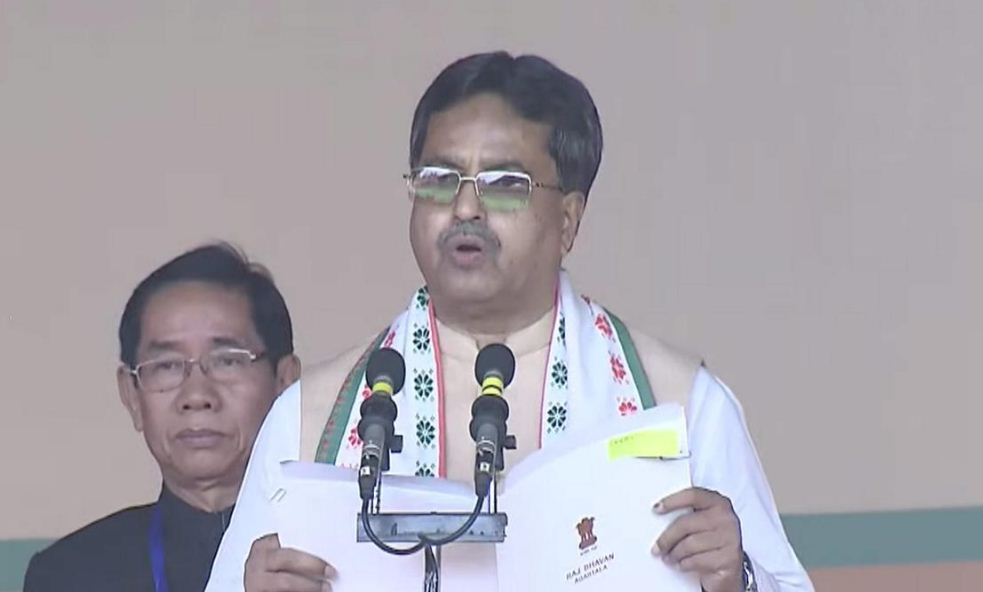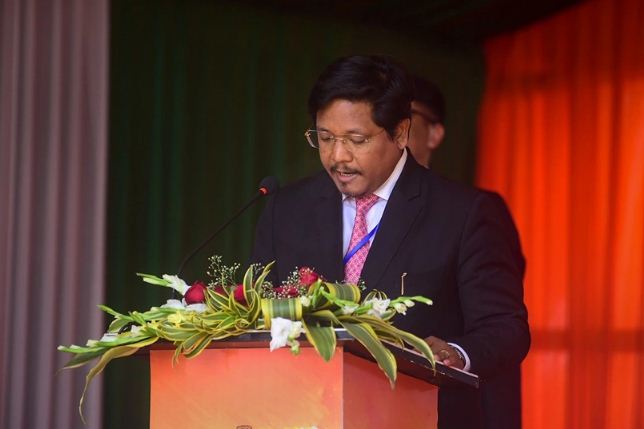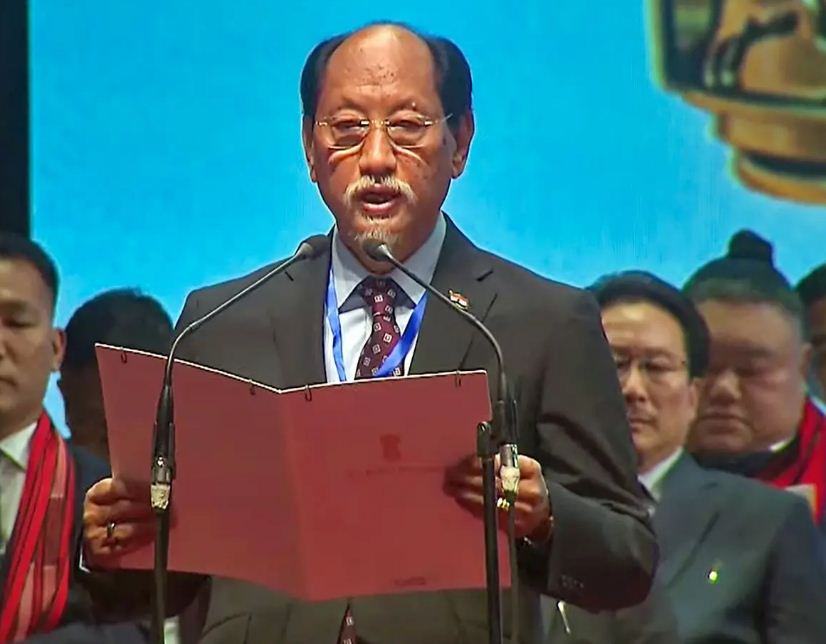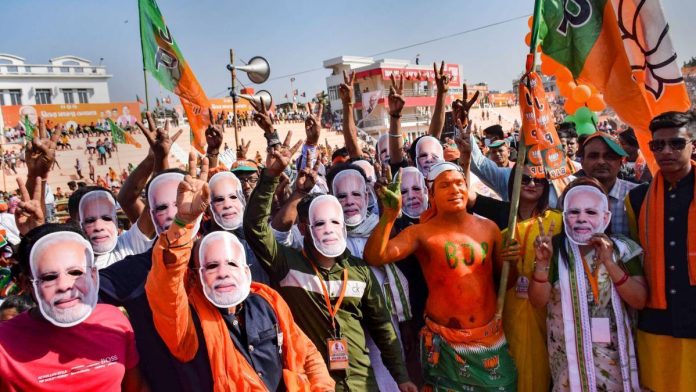By Chanakya
Exit polls were right. The BJP and its allies won three north-eastern states of India in recent assembly elections. As results were declared on March 2, the BJP won Tripura handsomely, with all others ending up as meter pretenders, while helped in king-making in Meghalaya and Nagaland as a junior partner in ruling coalitions.
The BJP overcame a Left-Congress alliance and the TIPRA Motha, which had emerged as a force to reckon with in tribal seats, to bag 32 seats in Tripura, one more than the majority mark. It retained power in Nagaland along with senior alliance partner Nationalist Democratic Progressive Party (NDPP). In Meghalaya, the National People’s Party (NPP) emerged as the single-largest party. The NPP and the BJP ruled the state together for five years but contested the elections separately. Both said they would tie up again.
The Tripura result underlined the party’s popular acceptance in the erstwhile Left bastion even though its seat tally came down from 36 five years ago to 32. But a point of concern for the ruling party will be its vote share declining from 43.59 per cent to 38.97 per cent. The BJP is also likely to be concerned about the emergence of the TIPRA Motha that won 13 seats while the ruling party’s tribal ally Indigenous People’s Front of Tripura (IPFT) won just one constituency, down from eight the previous time.
The BJP’s most prominent tribal face and Deputy Chief Minister Jishnu Dev Varma lost to his TIPRA Motha rival Subodh Deb Barma in Charilam constituency by 858 votes.


The Left-Congress alliance managed 14 seats. In 2018, the CPI(M) had won 16 seats when it contested the polls on its own while the Congress failed to open its account.
BJP leader Manik Saha took charge as the Chief Minister of Tripura for the second time, but the spotlight was on the TIPRA Motha, a new regional party.
The meeting triggered speculation about the possibility of the TIPRA Motha joining the BJP-Indigenous People’s Front of Tripura (IPFT) alliance government; more so, after three Cabinet berths were left vacant.
The Meghalaya polls
In Meghalaya, the NPP won 26 seats. Though it is short of the magic number — 31 in this case — it is unlikely to find it hard to cobble up the numbers. With 11 constituencies in the bag, the party’s old ally United Democratic Party (UDP) has almost doubled its tally of six seats it won in 2018 and the BJP too has extended its support to the NPP.
Sangma responded, tweeting: “Thank you @BJP4Meghalaya for reaching out to the NPP and for extending your support to our party to form the Government. We will continue to work together to serve Meghalaya and its people.”
Though the two parties bitterly sparred in the run-up to the elections, the NPP is not oblivious to having the BJP as a partner at the state level, given the party’s firm control over the Centre, said sources.


The Mamata Banerjee-led Trinamool Congress (TMC), which had run a high-intensity campaign, failed to live up to expectations. The party managed to win only five seats, with its most prominent leader Mukul Sangma losing in one of the two seats he contested.
National People’s Party chief Conrad Sangma took oath as the Chief Minister of Meghalaya for the second consecutive term. Prestone Tynsong and Sniawbhalang Dhar took oath as the Deputy Chief Ministers of Meghalaya in Shillong.
The NPP-led alliance, with the support of 45 MLAs two of the BJP has staked claim to form the government in the state.
Among the allies, the eight cabinet berths will go to the NPP, two to the United Democratic Party (UDP) and one each for Bharatiya Janata Party (BJP) and Hill State People’s Democratic Party (HSPDP).
The Nagaland issue
In Nagaland, the NDPP-BJP alliance increased its tally from 29 to 37 and is poised to return to power without requiring support from other parties.
Neiphiu Rio, who won from his constituency Northern Angami II with a 92.78 per cent vote share, is set to return as CM for a fifth term. The increase in the alliance’s tally is largely on account of the NDPP’s growth at the expense of the Naga People’s Front (NPF) that managed to win only two seats. The BJP — which contested 20 seats as part of the seat-sharing arrangement — won 12 seats, the same as last time, and its vote share increased from 15.31 per cent to 18.8 per cent.
Among the most significant outcomes is that the Nagaland Legislative Assembly is going to have women MLAs for the first time. Both the NDPP’s women candidates Hekani Jakhalu from Dimapur III and Salhoutuonuo Kruse from Western Angami won and created history.
Nationalist Democratic Progressive Party (NDPP) leader Neiphiu Rio on March 7 took oath as the Chief Minister of Nagaland for the fifth term. The 72-year-old politician was administered the oath of secrecy by Governor La Ganesan. This is Rio’s fifth term, his second on the trot as a leader of the NDPP.


Nationalist Democratic Progressive Party (NDPP) leader Neiphiu Rio on March 7 took oath as the Chief Minister of Nagaland for the fifth term. The 72-year-old politician was administered the oath of secrecy by Governor La Ganesan. This is Mr. Rio’s fifth term, his second on the trot as a leader of the NDPP.
Taditui Rangkau Zeliang and Yanthungo Patton took oath as Deputy Chief Ministers of Nagaland in Kohima, while other members of the Rio Cabinet also took oath.
Prime Minister Narendra Modi, Union Home Minister Amit Shah, Nagaland Governor La Ganesan, BJP president J.P. Nadda and Assam CM Himanta Biswa Sarma were among those present at the oath-taking ceremony in Kohima.





















